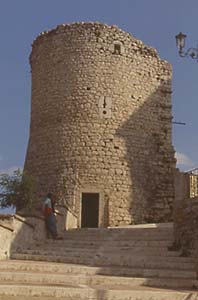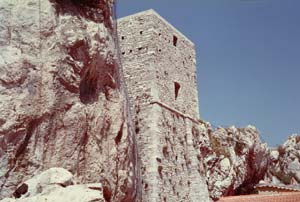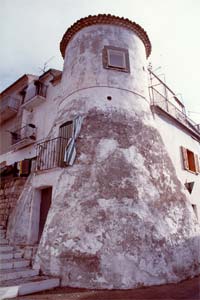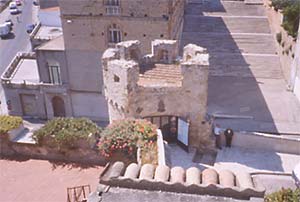 Fortifications
Fortifications
 Urban
fortifications
Urban
fortifications
The castle usually
occupies a pre-eminent and visually outstanding position in the urban
settlements. Initially the castles were almost always built in a peripheral
location (on the summit of a rocky ridge on which the village developed, as in
Roccapipirozzi or Pescolanciano, or at its edge, as in Castropignano, Riccia or
Colletorto). Now, due to a continuous process of saturation of available spaces,
they are surrounded by houses. In some cases the castle (which after losing its
specific military function became a seigniorial mansion and has more recently
been divided into separate residential units) stands at the centre of the
village; in other cases (when it is located outside the built-up area) it
perches on the crest of a hill overlooking the village (as in Roccamandolfi).
The surviving towers and iconographic archive documents (e.g. Pacichelli, 1703)
bear witness to the fact that a large number of once isolated urban and curtain
wall towers were in time incorporated in other buildings, as is made apparent by
the planimetrical singularities observable in some urban cadastral maps. Walls
and curtain walls suffered considerable mutilations and transformations, often
affected by crowding construction phenomena (as in Fornelli, S.Croce di Magliano,
Montorio).
|
 |
Campobasso |
 |
Pietrabbondante |
|
|
|
 |
Santa Croce di Magliano |
|
 |
Termoli |



![]() Fortifications
Fortifications![]() Urban
fortifications
Urban
fortifications



